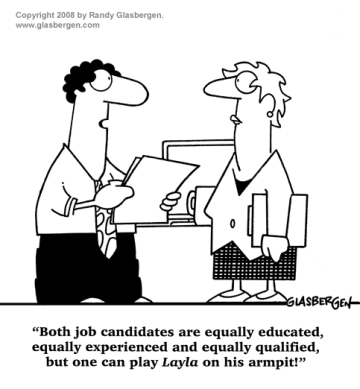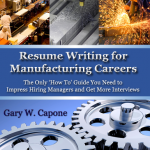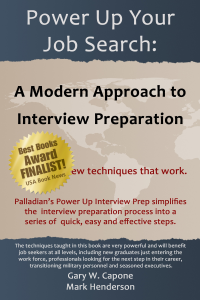Making these 10 mistakes in your job search will limit your success and hold you back.
 In good economic times, a job search can be difficult. In tough times, the challenge is even greater. To be successful in a search, you need to market your potential effectively. Unfortunately, many job seekers make mistakes that hold them back. Below are ten of the biggest mistakes you can make in your search:
In good economic times, a job search can be difficult. In tough times, the challenge is even greater. To be successful in a search, you need to market your potential effectively. Unfortunately, many job seekers make mistakes that hold them back. Below are ten of the biggest mistakes you can make in your search:
1. WIIFM – The biggest mistake job seekers make is focusing on “What’s In It For Me” and not what is important to the employer. When you look for a job, you are trying to persuade a company to spend tens of thousands of dollars on you. They need a good reason to do that and helping your career or satisfying your needs isn’t a priority for them.
Focus on the goals of the company and hiring manager – not your goals.
2. No Cover Letter – Sending a resume to a company introduces you to the employer. Without a cover letter, the impression you make will be less personal and less effective. The main goal of the cover letter is to motivate the hiring manager to want to read your resume. Just sending a resume usually won’t create this motivation. You need something to get them excited.
Always send a cover letter that highlights your skills and accomplishments.
3. No Objective – To many job seekers submit resumes without indicating the type of position they want. A hiring manager is not going to spend time trying to determine what the best job for you is. You need to point them in the right direction. Either in your cover letter or in your resume, indicate the type of position you are seeking.
Clearly show what type of position you should be considered for.
4. No Accomplishments – To make a good impression, you need to show what you have done. Most job seekers focus on detailing their responsibilities. Being responsible for something doesn’t make a person any good at it. You need to show your performance.
Demonstrate your potential by including specific accomplishments.
5. Missing Information – Your resume needs to convey certain information. Failing to include details that are commonly expected will make a poor impression. Employment dates, names of employers and job titles need to be included.
Ensure your resume clearly shows your employment history.
6. Overly General Applications – With the ease of sending resumes to hundreds of employers with only a few clicks, some job seekers generalize their resume. The goal is to make it as broad as possible. The result is the resume ends up looking like everyone else’s and they get passed over.
Customize your resume for each position, emphasizing your skills, abilities and accomplishments related to the job.
7. Not Networking – The most effective way to find a job is through networking, and yet, many job seekers do very little networking. Getting a contact in a company to refer you to a hiring manager will greatly improve your chances of getting hired. This is a job search strategy that you need to use.
Find someone in each target company that can help you.
8. Not Preparing for an Interview – It is essential that you research the company and position before going to an interview. This is expected by hiring managers. If you don’t do this, you will make a poor impression.
Prepare thoroughly for each interview and complete at least two or three mock interviews before your first real interview.
9. Not Proofreading – Spelling mistakes and grammatical errors need to be minimized in your resume. Your resume is the primary sales document for you. Hiring managers review resumes with the expectation that it is the highest quality work you can produce. If it is poorly written, with spelling errors, grammatical errors, inconsistent sentence structure and awkward writing, it will hurt your chances.
Read your resume slowly out loud to catch mistakes, and find a good writer to proofread your resume.
10. Not Getting Help – Most job seekers avoid getting help from experts. Some fear the negative feedback and others just think they can do it all themselves. Your resume and interviewing are too important to try a DIY approach. Get an expert to help. Their advice and assistance can be invaluable.
Get help from friends and hire expert coaches improve your resume and interview skills.











